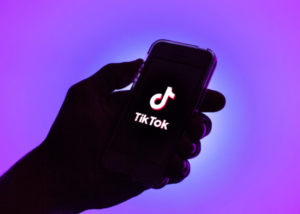We take a weekly look at mobile and tech stories from around the world. Headlines include… RCS gets end-to-end encryption boosting interoperability, NVIDIA and Telecom Industry Leaders to Develop AI-Native Wireless Networks for 6G, Google, Apple hit by EU regulatory crackdown and much more… Alternatively listen On MEF Radio.

RCS gets end-to-end encryption boosting interoperability, says GSMA
Telemedia Online
The GSMA has introduced new specifications for Rich Communication Services (RCS), incorporating end-to-end encryption (E2EE) based on the Messaging Layer Security (MLS) protocol. This update ensures that messages and shared content remain secure and confidential across different client implementations, making RCS the first large-scale messaging service to support interoperable E2EE.
According to GSMA’s technical director Tom Van Pelt, this advancement, combined with SIM-based authentication, provides users with stronger protection against scams, fraud, and other security threats. The enhancements form the foundation of the new RCS Universal Profile release, which also improves business messaging with a richer deep link format, better audio codecs, and streamlined subscription management.
Read more…

The war on encryption is dangerous – Signal
FT
The writer is president of encrypted messaging service Signal. The UK government’s demand for Apple to weaken its encryption has been likened to forcing a car company to compromise its brakes—an act that would put millions at risk. Apple was compelled to remove end-to-end encryption from its backup storage service, significantly increasing vulnerabilities for users and critical infrastructure.
Apple, a company that prides itself on privacy and security, did not make this decision lightly. Having invested billions in cryptographic technology, it was nonetheless forced into compliance by a government mandate requiring it to introduce security weaknesses. This move not only affects UK users but has global implications, as compromising encryption in one region can undermine security worldwide.
Read more…

NVIDIA and Telecom Industry Leaders to Develop AI-Native Wireless Networks for 6G
NVIDIA
NVIDIA has announced partnerships with T-Mobile, MITRE, Cisco, ODC, and Booz Allen Hamilton to advance AI-native wireless network technology for 6G. These next-generation networks will integrate AI at their core to enhance connectivity for billions of devices, including phones, sensors, cameras, robots, and autonomous vehicles. AI-native 6G will improve spectral efficiency, optimize resource utilization, and open new revenue opportunities for telecom providers while delivering superior performance and service quality.
Read More…

Oracle Discusses Potential Role in TikTok’s Future Amid U.S. Deadline
Politico
Oracle met with top congressional aides on Capitol Hill to discuss its potential role in TikTok’s future as the app faces an April 5 deadline to cut Chinese ties or face a U.S. ban. Lawmakers questioned whether Oracle—already managing TikTok’s U.S. user data—could take full control of the platform.
A buy-in from Oracle would shake up the mobile ecosystem, positioning the cloud giant as a major force in social media.This could impact telecom carriers handling TikTok’s massive data traffic and disrupt mobile advertising, challenging Google and Meta’s dominance.But questions remain over whether China would allow TikTok’s key algorithm to change hands.
Read more…

Indonesia adds support for NFC payments to QR mobile payment system
NCFW
Indonesia’s central bank has introduced NFC payment support to its national QR mobile payments platform, QRIS. This follows a similar move by Brazil’s central bank, which recently added NFC support to its Pix payment system. The new feature, called QRIS Tap, aims to enhance digital transactions by offering a faster, more convenient, and secure payment method, particularly for public services and digital retail transactions. “QRIS Tap provides a fast, convenient, affordable, secure and reliable alternative payment method for the public, particularly to support public services and digital retail transactions,” Bank Indonesia says
Read more…

Google, Apple hit by EU regulatory crackdown
Reuters
The European Commission is cracking down on Apple and Google under the Digital Markets Act, accusing Google of unfairly promoting its own services in search results and restricting app developers on its Play Store. Google argues the rules harm consumers and businesses despite making changes to comply.
Meanwhile, Apple is being pushed to improve interoperability of iOS devices with rival products like smartwatches and VR headsets. The enforcement comes amid rising U.S.-EU trade tensions, with Washington viewing these actions as targeting American tech giants. Brussels insists its focus is consumer fairness, not geopolitics.
Read More…

Analysis: Apple’s encryption standoff with the UK Government leaves users exposed
Mobile News
Apple’s decision to withdraw its Advanced Data Protection (ADP) feature from the UK underscores the ongoing tensions between tech companies and governments over encryption and privacy. The UK government’s demand for a backdoor into iCloud encryption was met with Apple’s firm opposition, as such a measure would compromise security not only in the UK but globally. Unable to comply without undermining its core privacy principles, Apple chose to remove ADP entirely for UK users, leaving their data more vulnerable to cyber threats. This move highlights the growing debate over security versus government access to private information.
Read More…

Rewards and Easy Payment Options Win Over Mobile Shoppers
PYMNTS
The rise of the click-and-mortar shopper highlights the growing role of mobile devices as the central hub for both online and offline commerce. Consumers increasingly expect seamless payment experiences and personalized rewards, especially in an uncertain economic climate.
According to PYMNTS Intelligence’s “2025 Global Digital Shopping Index”, nearly half of recent global retail purchases involved smartphones—whether for browsing, gathering product information, or completing transactions. This trend presents a valuable opportunity for forward-thinking merchants to optimize the mobile shopping experience by offering convenient payment options and targeted incentives to drive conversions.
Read more…

AI Meets RCS: The New Standard for Mobile Messaging Engagement
Marketing Profs
Rich Communication Services (RCS) is emerging as the next-generation messaging standard, set to replace SMS and MMS by offering richer, more engaging multimedia interactions. While Generative AI has captured marketers’ attention, RCS is quietly transforming mobile messaging by enabling brands to create more interactive and dynamic customer experiences. Consumers already favor text-based marketing, with a majority preferring to receive brand messages regularly and engaging more with SMS offers than emails or mobile apps. The combination of RCS and AI-driven personalization will allow marketers to craft highly targeted and impactful campaigns, enhancing customer engagement and conversion rates.
Read More…

Zain Group entices IoT OEMs with Global M2M offering
Mobile Europe
Despite the rapid growth of the IoT market, even major telecom companies like Vodafone have struggled with its complexity and fragmentation, leading some to spin off their IoT divisions. In contrast, Kuwait-based Zain Group has adopted a different strategy by positioning itself as a gateway connectivity provider for OEMs in the Middle East. It has introduced a Global M2M solution aimed at simplifying IoT connectivity for various industries. Additionally, Zain has become the first regional operator to offer global connectivity using a global International Mobile Subscriber Identifier (IMSI), further enhancing its ability to serve the IoT market.
Read More…

UK watchdog bans ‘shocking’ ads in mobile games that objectified women
Guardian
An investigation by the UK’s Advertising Standards Authority (ASA) uncovered disturbing ads in mobile gaming apps that sexualized women, used pornographic tropes, and depicted non-consensual and coercive scenarios. Using avatars to simulate different user demographics, the ASA monitored in-game ads and found that while most complied with regulations, eight were flagged and banned for portraying women in a harmful manner.
Read More…





